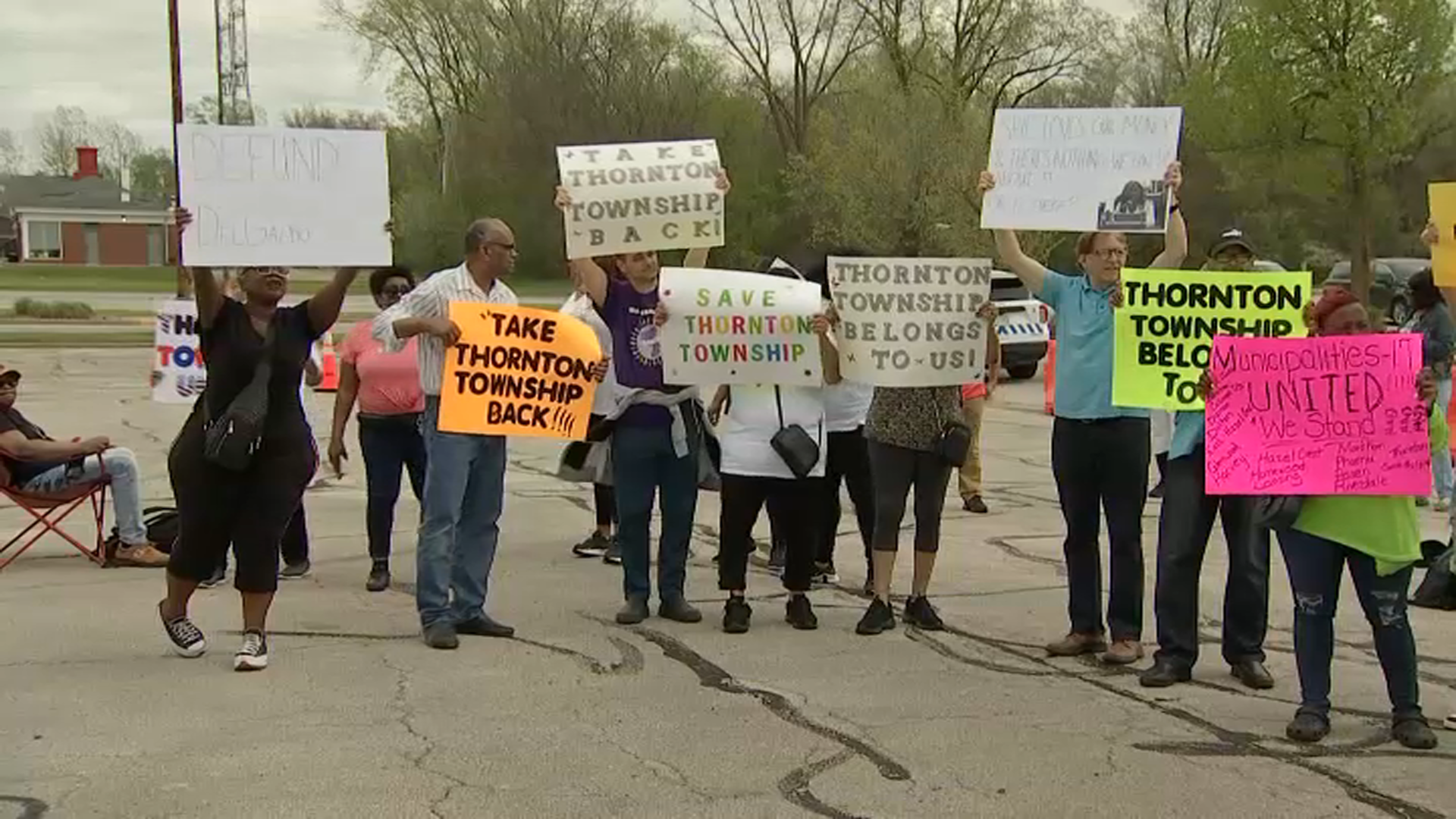With a potential end inching closer, how many votes will it take for the next House speaker to finally be elected and where do things stand as the chaotic election enters its fourth day?
Republican Kevin McCarthy flipped more than a dozen colleagues to support him in dramatic votes Friday, nearing victory on the 12th ballot of a grueling standoff that was testing American democracy.
The changed votes from conservative holdouts, including the chairman of the chamber's Freedom Caucus and Illinois Rep. Mary Miller, put McCarthy close to seizing the gavel. It was the first time he had won the most votes, 213, though he still fell short of a majority.
A 13th vote was swiftly launched, this time, just between McCarthy and the Democratic leader, without a Republican challenger to siphon GOP votes away.
Feeling out of the loop? We'll catch you up on the Chicago news you need to know. Sign up for the weekly Chicago Catch-Up newsletter here.
What changed, what needs to happen and why is this election so different?
Here's a breakdown:
WHY IS THERE NO SPEAKER?
Local
So far Republicans have been unable to settle on a new speaker — normally an easy, joyous task for a party that has just won majority control. But not this time: About 200 Republicans have been stymied by 20 far-right colleagues who said he’s not conservative enough.
A growing chorus of detractors warned for months that the California Republican did not have the votes to win the constitutionally mandated office, which would make him second in line to the presidency. In response, McCarthy negotiated endlessly with members, including Reps. Andy Biggs, Scott Perry and Matt Gaetz, to win their support.
The negotiations went up until Monday night when members of the ultra-conservative Freedom Caucus presented McCarthy with their final offer, which included demands for certain committee assignments in exchange for their votes.
McCarthy refused to oblige, saying he had gone far enough to appease the lawmakers.
As a result, those members and more than a dozen others openly opposed him on the floor.
Among those choosing not to get behind McCarthy’s candidacy was downstate Rep. Mary Miller, who cast her vote for Rep. Jim Jordan, despite the Ohio Republican delivering a speech formally nominating McCarthy for the position, and Rep. Byron Donald's, R-Fla.
While Jordan said he didn't want the job, other Republicans called for Rep. Steve Scalise as a compromise candidate to appeal to the hardline members of the caucus who refuse to vote for McCarthy.
One McCarthy critic, Rep. Matt Gaetz of Florida, even cast his votes for Donald Trump, a symbolic but pointed sign of the broader divisions over the Republican Party's future.
WHERE DO THINGS STAND?
Needing 218 votes in the full House, McCarthy received just 203 in the first two rounds of voting on the first day — less even than Democrat Hakeem Jeffries in the GOP-controlled chamber — and fared even worse with 202 in round three.
For a fourth, fifth and sixth time Wednesday, Republicans tried to vote McCarthy into the top job as the House plunged deeper into disarray. But the votes were producing almost the same outcome, 20 conservative holdouts still refusing to support him, and leaving him far short of the 218 typically needed to win the gavel.
In fact, McCarthy saw his tally slip to 201, as one fellow Republican switched to vote simply present.
McCarthy lost a seventh round and was gaining no ground in an eighth on Thursday.
But an upbeat McCarthy told reporters as he arrived at the Capitol Friday morning, “We’re going to make progress. We’re going to shock you.”
One significant former holdout, Republican Scott Perry, chairman of the conservative Freedom Caucus, tweeted after his switched vote for McCarthy: “We're at a turning point.”
The stunning turnaround came after McCarthy agreed to many of the detractors' demands.
At the core of the emerging deal is the reinstatement of a House rule that would allow a single lawmaker to make a motion to “vacate the chair,” essentially calling a vote to oust the speaker. McCarthy had resisted allowing a return to the longstanding rule that former Speaker Nancy Pelosi had done away with, because it had been held over the head of past Republican Speaker John Boehner, chasing him to early retirement. But it appears he had no other choice.
That change and others would shrink the power of the speaker’s office and give rank-and-file lawmakers more influence in drafting and passing legislation.
Other wins for the holdouts include provisions in the proposed deal to expand the number of seats available on the House Rules Committee, to mandate 72 hours for bills to be posted before votes and to promise to try for a constitutional amendment that would impose federal limits on the number of terms a person could serve in the House and Senate.
"We are negotiating a historic conservative victory to finally stop reckless SPENDING and DEBT from crushing our children & grandchildren," Miller wrote on Facebook shortly after switching her vote. "We will ensure a Republican House cannot do what Senate Rs did when they passed the disastrous $1.7 TRILLION omnibus!"
But several holdouts remained. The final 12th vote tally: McCarthy, 213 votes; Democrat Hakeem Jeffries 211. Other Republicans Jim Jordan and Kevin Hern picked up protest votes. With 431 people voting, due to absences, McCarthy was a few votes short of the majority.
WHAT DOES THAT MEAN FOR THE CHAMBER?
Without a speaker, the House cannot fully form since that person effectively serves as the chamber's presiding officer and the institution’s administrative head.
Swearing in members, naming committee chairs, engaging in floor proceedings and launching oversight investigations will all be delayed until a speaker is elected and sworn into office.
A memo sent out by the House’s chief administrative officer Thursday evening said that committees “shall only carry-out core Constitutional responsibilities." Payroll cannot be processed if the House isn't functioning by Jan. 13.
The showdown that has stymied the new Congress came against the backdrop of the second anniversary of the Jan. 6, 2021, attack on the Capitol, which shook the country when a mob of then-President Donald Trump’s supporters tried to stop Congress from certifying the Republican’s 2020 election defeat to Democrat Joe Biden.
Even if McCarthy is able to secure the votes he needs, he will emerge as a weakened speaker, having given away some powers, leaving him constantly under threat of being voted out by his detractors. But he would also be potentially emboldened as a survivor of one of the more brutal fights for the gavel in U.S. history.
The disorganized start to the new Congress pointed to difficulties ahead with Republicans now in control of the House, much the way that some past Republican speakers, including Boehner, had trouble leading a rebellious right flank. The result: government shutdowns, standoffs and Boehner's early retirement.
HAS THIS EVER HAPPENED BEFORE?
The last time the House did not elect a speaker on the first ballot was 1923 when the election stretched for nine ballots.
At the time, Republicans had won the majority despite losing a staggering 77 seats, shrinking their margin over Democrats from 171 to just 18. The majority party had named incumbent Rep. Frederick Gillett, R-Mass., to the position, but several other candidates, including a Democrat, received votes during the roll call.
This resulted in a series of ballots over three days before House Majority Leader Nicholas Longworth, R-Ohio, held an emergency meeting with those opposing. Their concern, similarly to those issued against McCarthy, was over a series of rules changes that they believed deserved a fair hearing. Longworth obliged and the next day Gillett garnered the 215 votes he needed to remain speaker.
The longest fight for the gavel started in late 1855 and dragged on for two months, with 133 ballots, during debates over slavery in the run-up to the Civil War.



